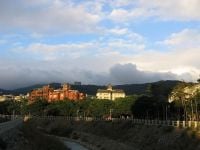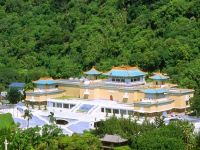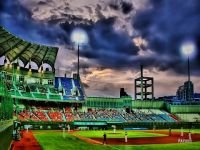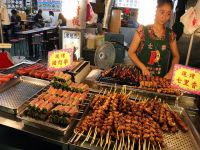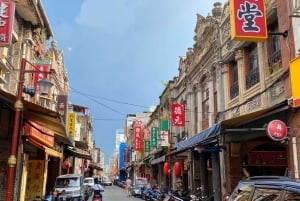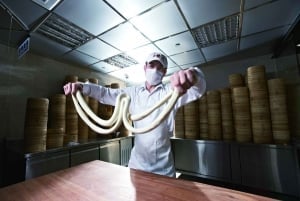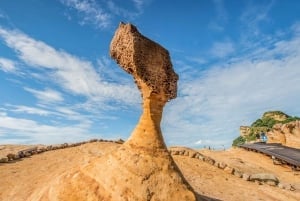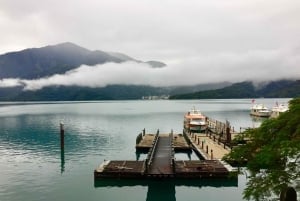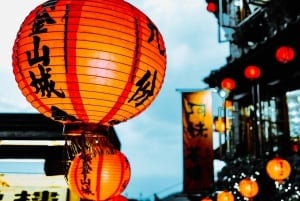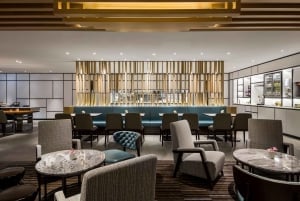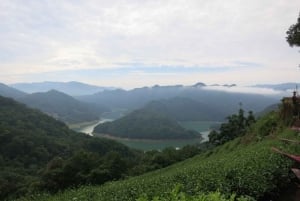Shilin District
Shilin District
Just south of Beitou is the Shilin District, an area KMT leader Generalissimo Chiang Kai-shek once hung his hat in at his Shilin Official Residence. The residence, at the foot of Fushan (Mount Fu) is open for tours from 08:00 to 17:00 daily, and is just a five to ten minute walk from exit 2 of the Shilin MRT Station. Atop Fushan, which is called a mountain but is really more of a hill, is the two-story Ciyun Pavilion, which is also open to visitors. This is also one of the best places in Taipei for horticulturists, as during the Japanese Colonial era the residence was a horticultural experimentation station. Today, many flower gardens dot the grounds, featuring roses which bloom from February through to May, and carefully manicured bonsai trees.
Whereas Shida is largely home to the foreign student population of Taipei, the Shilin enclave of Tianmu is where you'll find a large percentage of the ex-pat crowd in Taiwan who work for multinationals and other large companies. This hearkens back to the days when the U.S. maintained a military presence in Taiwan (before switching political recognition to Beijing), and many American soldiers were settled in Tianmu. Thus, many Western, or Western-influenced chain stores have opened in the area, and Shilin is also where you'll find the international schools such as Taipei American School, Taipei Japanese School, and Taipei European School. Tianmu is also the embassy/representative office district, where the few countries who still maintain official diplomatic relations with Taiwan (most countries favor China in this regard these days) have facilities.
Like Beitou, Yangmingshan National Park is also accessible from Tianmu. If you're into sports, swing by the Tianmu Baseball Stadium if you happen to be visiting during the spring, summer, or fall. The stadium, with a capacity of just over 10,000, hosts games of the Chinese Professional Baseball League, a four-team association featuring the best ball players in Taiwan and a smattering if international imports. Taiwan frequently fields highly competitive teams in international events, so the quality of play is quite high, somewhat similar to AAA ball in the U.S. Pro games at the stadium take place on weekends. Consult the CPBL schedule for details.
This is the night market of night markets in Taipei City—The Big One. The sprawling market dates back as far as the 19th century when the area's small harbor along the Keelung River became a center of trade. Today, it covers several city blocks centered around Wenlin Road and Dadong Road. To get there, take the MRT to Jiantan Station and then just follow the crowd—and there is always a crowd, no matter when you might go. Just across the street from the station is a building which is basically a giant food court, and is your one-stop place to try a variety of local delicacies, from Taiwanese style fried chicken, to oyster omelets, to pig brain soup, depending on how adventurous you're feeling.
If you really feel like testing your stomach (not to mention your nose) try out some stinky tofu. That's tofu left out to ferment until it achieves just the right amount of noxiousness, and then served either boiled or deep fried. Just remember, it tastes a lot better than it smells, and the locals gauge just how local they are by the level of stench they can stand. If you want to endear yourself to the natives, this is your ticket.
Another must-see in Shilin is the National Palace Museum, a complex rife with treasures from Mainland China that were brought over with the fleeing KMT army following the Chinese Civil War. Here you'll find centuries old artifacts, including jade sculptures, paintings, calligraphy, and rare books. There are hundreds of thousands of pieces in all, so allow a full day to explore. Many of these pieces were once housed in the Palace Museum in Beijing's Forbidden City, but as fighting in the Civil War escalated in 1948, quite a few of the most prized pieces were crated up and shipped over to Taiwan, where they remain to this day as yet another source of contention between the two neighboring lands.
The National Palace Museum is open daily from 08:30 to 18:30 year round. General Admission is NT$160. Groups of 10 or more can get in for NT$100 per person. Those with a valid student ID will pay NT$80. And children under school age and those with a disability get in free. Museum hours may vary slightly during national holidays.


